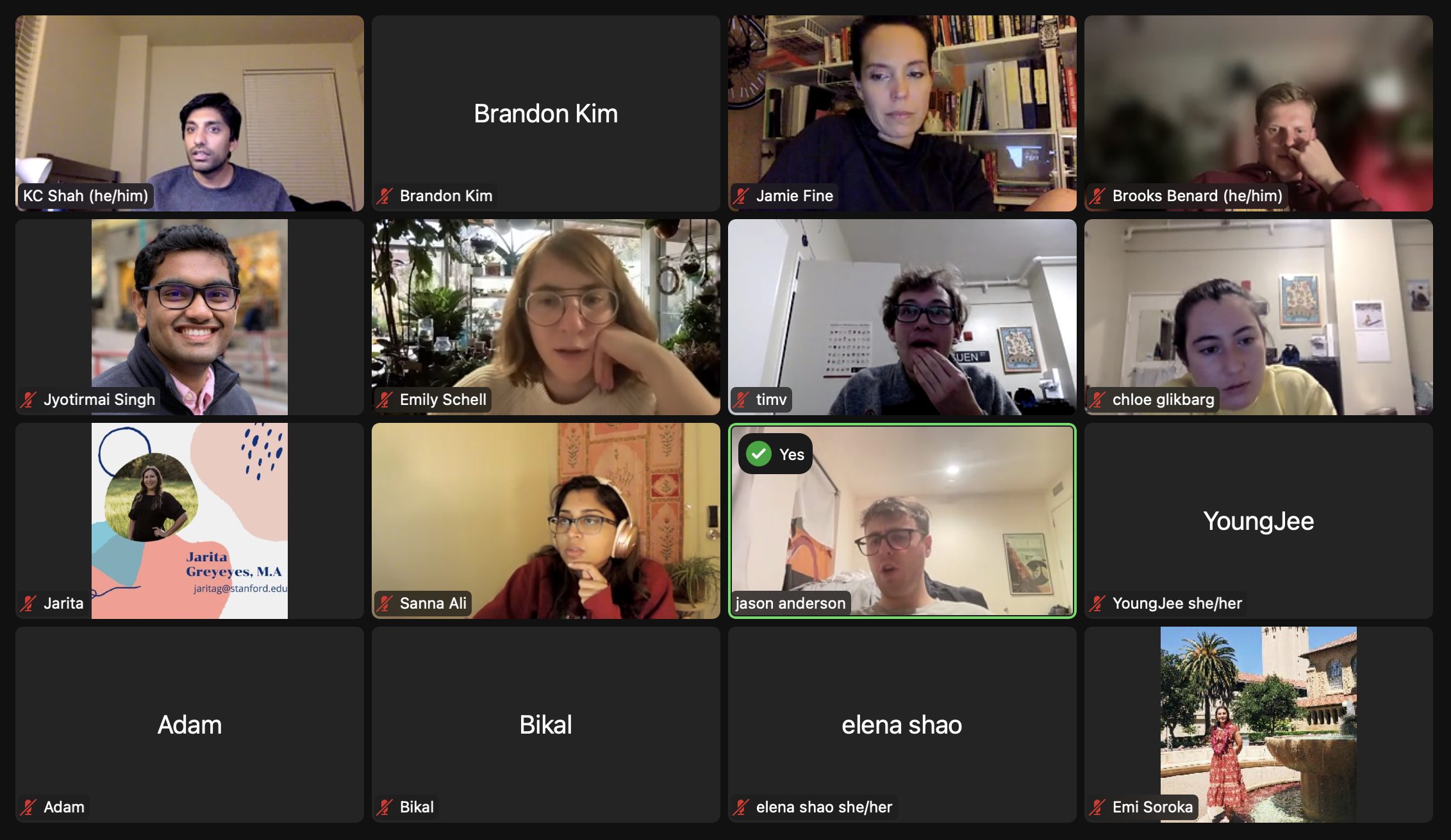Members of the Graduate Student Council (GSC) criticized Stanford’s approach to assisting students and staff affected by COVID-19 at their Wednesday meeting.
Councilors said they feel that the University is not providing faculty and staff with enough high-quality masks, especially as the Centers for Disease Control and Prevention weighs updating mask recommendations to highlight the efficacy of N95 and KN95 masks amidst the rise of the omicron variant. According to GSC co-chair K.C. Shah J.D. ‘22, Residential and Dining Enterprises staff in Munger Graduate Residences have mostly been wearing cloth and surgical masks.
GSC councilor and fourth year developmental and psychological sciences Ph.D student Emily Schell advocated for the University to supply high-quality masks to teaching assistants and graduate students due to the high-risk environment posed by a return to in-person classes. Schell also criticized what she called the University’s “haphazard” guidance around its phased reopening, which she said has differed across graduate schools and been left mostly to the discretion of instructors.
University spokesperson E.J. Miranda defended Stanford’s response to the omicron surge, writing in a statement to The Daily that administrators are “responding in real time to a rapidly evolving situation” and that policy changes “have been communicated promptly to the campus community.” Miranda added that instructors and teaching assistants are supported by the University’s Academic Continuity Committee and school deans.
Councilors acknowledged the establishment of the Associated Students of Stanford University (ASSU) COVID Isolation Aid program, which is meant to aid the delivery of “food, medicine, hygiene products and other necessities” to students in isolation. The GSC criticized Stanford’s isolation policy, especially regarding food delivery, during its meeting last Wednesday.
Councilors said that providing students with free COVID-19 assistance is crucial, given how difficult it can be for students to access financial aid on campus. Receiving financial support requires students to procure extensive documentation, according to GSC councillor and third-year aeronautics and astronautics Ph.D. student Jason Anderson, who suggested that these bureaucratic barriers may be intentionally put in place by the University as a way of cutting down on costs.
But Miranda pushed back on Anderson’s suggestion, writing that the Financial Aid Office is dedicated to administering resources “equitably and effectively” and welcomes “feedback from applicants about their processes.” Miranda encouraged students experiencing financial stress to contact the Financial Aid Office about their concerns.
Councilors also voted to pass four separate bills, starting with the unanimous confirmation of Joshua Jankelow ‘24 to the ASSU Constitutional Council. Jankelow pointed to his law-based philosophy as guiding his approach to the council, saying that he believes the sturdiness of the ASSU Constitution would serve to guide students in dealing with hotly contested issues.
Councilors also unanimously voted to confirm a bill that would clarify travel funding policies for voluntary student organizations (VSOs). Specifically, the bill would prevent funding policies from limiting VSOs to specific travel options like Uber, which councilors say are tied to environmental and affordability concerns.
Councilors additionally confirmed a bill that would call for the Faculty Senate to include doxxing as a violation of the Fundamental Standard. Although one GSC councilor, Tim Vrakas ’21 M.S. ‘22, questioned whether the broad definition of doxxing in the bill could harm individuals who called others out for harassment, the GSC concluded that this concern would bear little impact on the bill’s stated goal of expressing disagreement with the Faculty Senate’s previous decision to table multiple anti-doxing recommendations. Vrakas also serves on The Daily’s board.
“I agree that a lot of these things are in a gray area,” Schell said, adding that this should not impact the GSC’s efforts “to push back against [the Faculty Senate] and formalize that push back.”
This article has been updated to include comment from University spokesperson E.J. Miranda.
